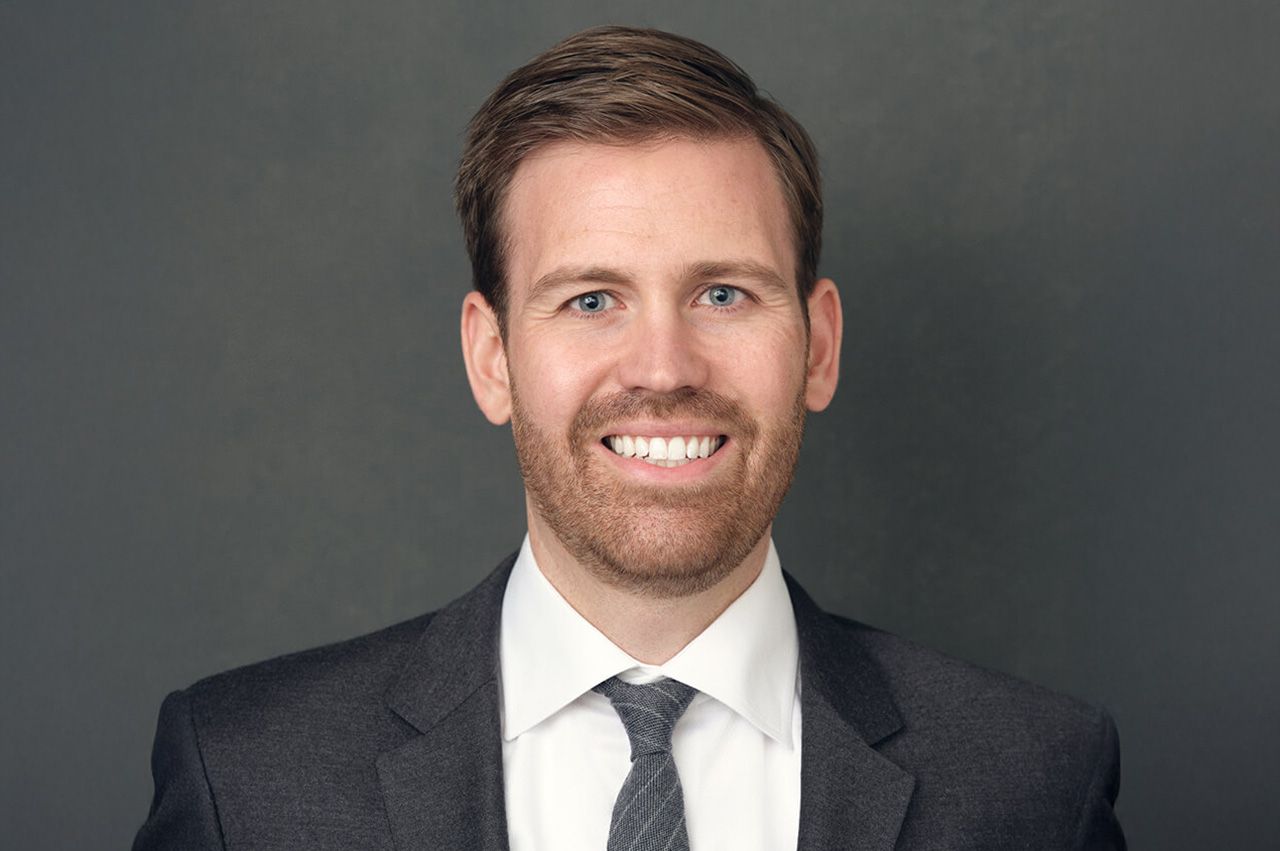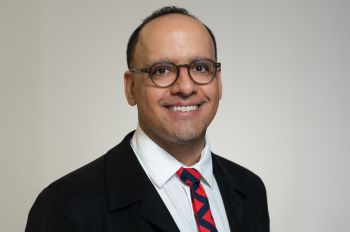It’s All in the Benefits: Chicago-Kent Clinical Professor Represents Former NFL player

“There’s no shortage of money in the NFL,” says Chicago-Kent College of Law Assistant Clinical Professor William Reynolds ’13. “Ultimately, if enough players make valid claims for benefits, then the owners of the teams will have to kick more money into the pension plan to pay them. That’s where there’s a direct financial incentive for the benefit plans to deny disability claims.”
Reynolds, backed by a legal team comprised of Chicago-Kent students in the Employee Benefits Claims Clinic, is representing former NFL player Ka’lial Glaud, who was denied coverage for his claim of neurocognitive disability that he believes stems from the multiple concussions he suffered playing for NFL franchises the Tampa Bay Buccaneers and the Dallas Cowboys.
“Because of his concussions, he’s had really persistent migraine headaches, neurocognitive issues, and other debilitating issues, all of which...are related to his traumatic brain injury,” says Reynolds.
Glaud’s initial “Line of Duty” claim to the NFL Player Disability and Survivor Benefit Plan was approved. This was a concession by the league that Glaud was injured while performing his job functions. However, when he applied for neurocognitive benefits—which provides a higher level of benefits—things didn’t go so smoothly.
“Glaud lives in New Jersey,” says Reynolds. “When they examined him for NC benefits, they first flew him to Washington, D.C., and then on appeal, they flew him down to Atlanta. These are supposed to be independent doctors—they can’t find someone within driving distance?”
The retirement plan can choose the specific doctors for evaluation. Several of those independent doctors, as well as Glaud’s own doctors, found that he has suffered a credible neurological impairment. Yet non-examining “MAP” doctors paid by the plan have the final say, and they claim that Glaud’s testing was invalid.
“Glaud was deemed to have failed one of five validity test measures,” says Reynolds. “One marker throughout 10 years of his claim being administered, as a borderline level. The final decision was that that one marker invalidated the entire collection of examinations. It’s contrary to have these tests are generally administered and scored, and goes against their own prior findings.”
The law that governs employee benefits and retirement plans is the Employee Retirement Income Security Act (ERISA). Because of ERISA, overturning claim denials requires the plaintiff clear a much higher bar than a typical contract dispute. It is similar to the burden of overturning a decision made by an administrative agency.
“A federal judge generally gives deference to an administrative law judge’s findings and ruling because that judge is the expert on their agency’s rules, procedures, and the subject matter at issue,” says Reynolds. “So, unless the decision was unreasonable, the federal court is generally not going to overturn the agency decision.”
The same standard is often applied to employee benefit plans as well, which are guided by their own set of rules. And plan administrators are granted discretionary authority if they write that clause into their plans. This is why players like Glaud have had such a difficult time challenging claims made under the NFL disability plans.
“A judge is not really decided whether or not Glaud is disabled,” Reynolds says. “The judge is going to decide whether or not the decision of the plan administrator is reasonable or not, which is a different standard and higher bar to clear. The plan can be wrong, but not ‘unreasonable.’”
That last part rubs Reynolds the wrong way. He, and his client, are backed into a legal corner, but Reynolds won’t go down without a fight. On behalf of Glaud, they are attempting to use ERISA in a novel way by asking that the MAP doctors who denied Glaud’s claim of neurological impairment be removed from their roles as plan fiduciaries.
“We have a legal basis for it,” says Reynolds, “based in part on the nature of the repetitive claim denials. The NFL is unilaterally incorporating…these rules and procedures that undermine the benefits that were collectively bargained, and the decisions seem to be coming out on the same side every single time, which is on the plan side.”
Reynolds’ specialty is advocating for benefits under ERISA.
For the last three years, he’s done that at Reynolds&, his employee benefit claim clinic that he operates within the Law Offices of Chicago-Kent College of Law. It’s a niche area of law, and exposing students to it gives him immense joy.
“There are not a lot of attorneys on the plaintiff side litigating individual claims,” he says. “This area just happens to be a little bit niche, and it can scare lawyers off because there are a lot of compliance issues and they’re complicated. It will benefit society to have more lawyers exposed to this type of stuff. If one or two of my students end up going into this type of practice, I’ll feel like I did the right thing.”
In the meantime, he and his students are combing through every public record they can get their hands on to help Glaud.
While preparing the lawsuit, Reynolds and his students often compared Glaud’s case to that of Damar Hamlin, a defensive back for the Buffalo Bills whose heart stopped on the field in 2023. Hamlin hadn’t been a player long enough to qualify for many of his player benefits, but the NFL offered to take care of his related medical bills for life. Meanwhile, retired players across the country recently filed a separate class action case to fight for their own benefits, which have been denied, just like Glaud’s.
“The vast majority of NFL players are more like Ka’lial, where they play for a little while, earn good money while they can play, but are not multimillionaires at the time they retire,” says Reynolds. “I feel like the NFL is responding when you see it on the screen, like Hamlin. But when the camera is off, it’s completely adversarial. It’s wrong.”
Glaud is also being represented by Richard Frankel of Bross & Frankel, P.A. in Cherry Hill, New Jersey.
Photo: William Reynolds [provided]



